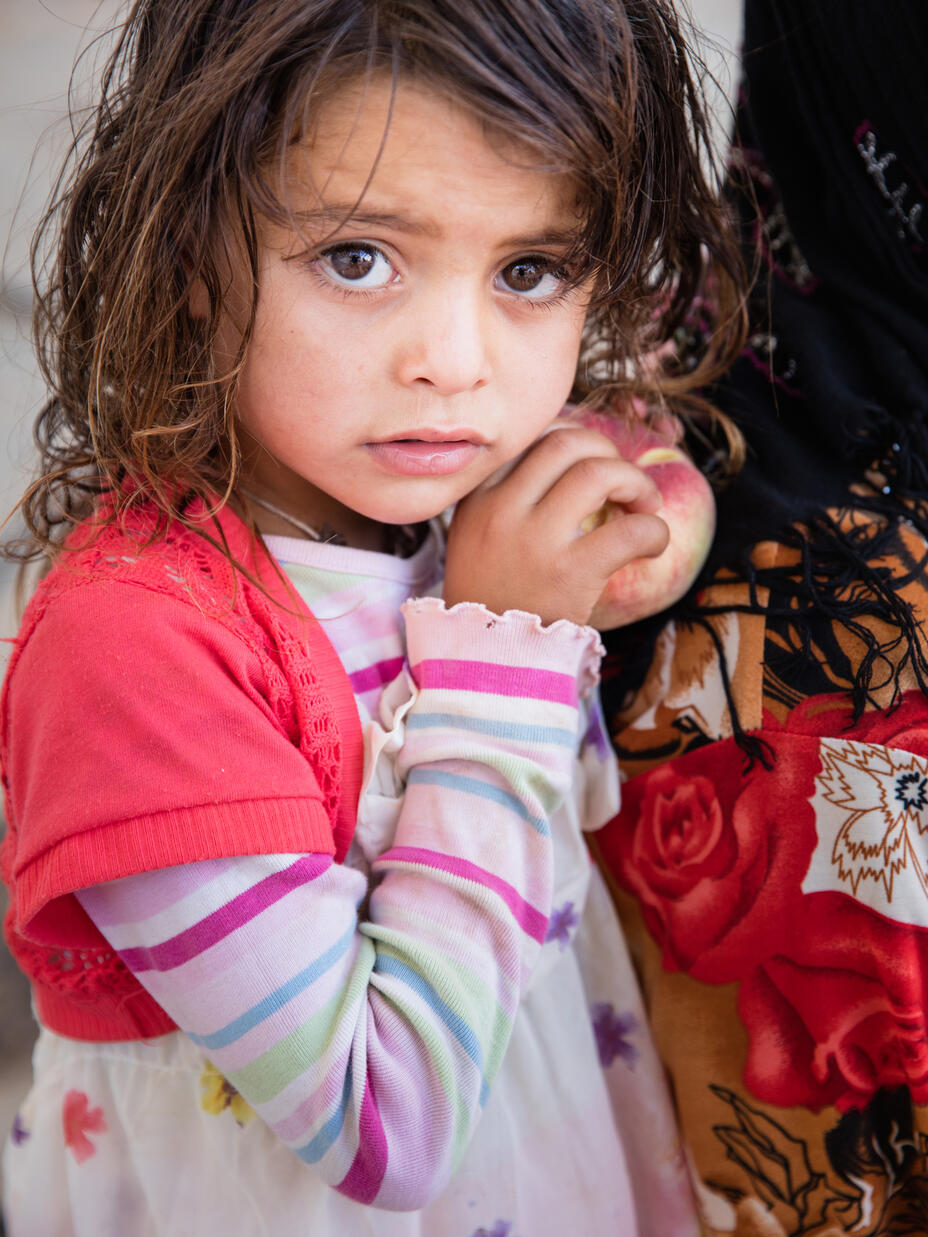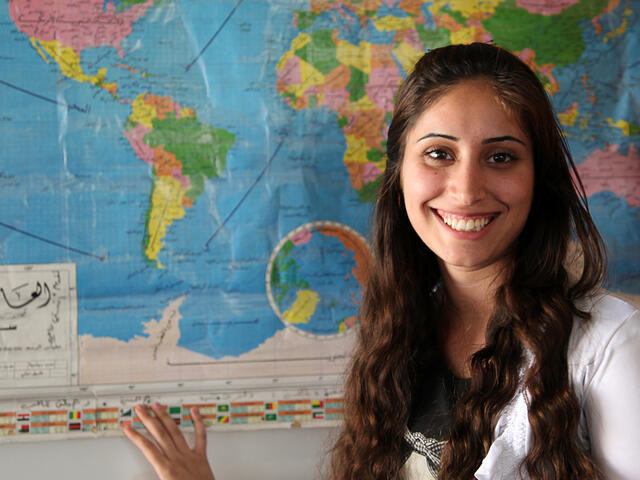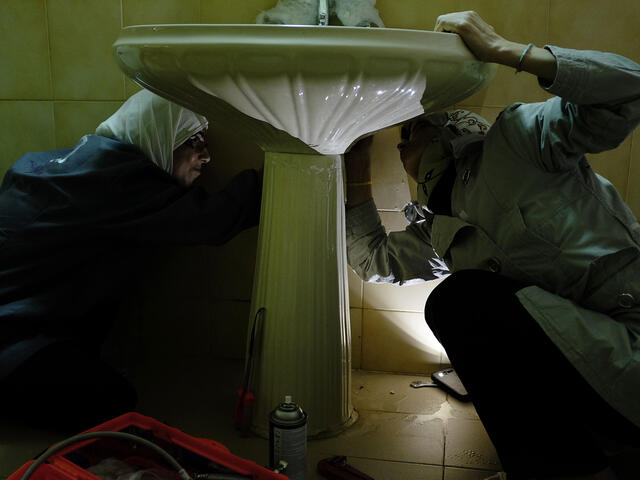American aid is a mighty defense against conflict, poverty and despair, especially in countries where war and violence has forced millions to flee from the places they once called home.
President Trump has proposed large cuts to foreign aid at a time of desperate need. In Syria alone, 13.5 million people require urgent humanitarian assistance, as do the 4.8 million who have fled to neighboring countries.
Yet less than 1 percent of the $4 trillion federal budget is spent on global foreign assistance to help the most vulnerable around the world survive, recover and gain control of their future.
The International Rescue Committee is proud to partner with the United States government in helping those whose lives have been shattered by conflict, a mission deeply rooted in America's values and traditions.
Here are just a few ways U.S. funds have helped Syrians:

1. Care for the youngest Syrians
Millions have no access to health care in Syria, where relentless bombings of hospitals and the tragic attacks on doctors have become a fact of life. It's extremely difficult to manage coughs, colds and other common childhood illnesses.
Last year, the IRC and its partners inside Syria reached over 75,000 children under the age of five at clinics and with mobile teams that provide critical medical supplies and equipment funded by the U.S. We also helped deliver more than 13,000 Syrian babies born under bombardment in dangerous cities like East Aleppo.
2. Care for the injured
Close to half a million Syrians have died during the six-year-old war; as many as 6,000 people flee Syria every day as attacks on homes, markets, schools and hospitals continue.
U.S. funds have equipped and staffed trauma centers where the IRC's local partners provide critical care and emergency surgeries for patients suffering from traumatic wounds from bombs, rockets and gunfire. All told, the IRC and its partners have treated 38,000 adults.
3. A lifeline for women and girls
Syrian women and girls living in remote parts of Lebanon have suffered hardship, trauma and tragedy. They bear the physical and emotional scars of the war, and although they have found some respite, women and girls continue to face serious risk of violence at home and in their new, yet unfamiliar communities.
The IRC reaches them with roaming teams of social workers generously supported by the U.S. IRC aid workers travel to villages and makeshift camps to assess the safety of women and girls and provide therapeutic activities, critical care and support for survivors of assault, and special programs for teenage girls.

4. Investment in the future
For the millions of children who have experienced death and destruction, schools are their only means of structure and routine. Education is the most reliable route out of poverty and a critical path toward prosperous societies.
Yet, over one third of Syrian children remain out of school. These children have endured violence and neglect that can lead to toxic stress, and they will not have learned the skills they need to support themselves and help rebuild their communities.
Parwin fled Syria with her family in 2013 after they were targeted for their politics. They found refuge in Domiz refugee camp where U.S. funds helped construct a school, provide classroom supplies and train teachers.

5. Empowerment of women entrepreneurs
Refugees have a tough time starting over after their lives have been stolen from them—millions of Syrians face an unknown future with unanticipated perils.
Despite such psychological challenges, not to mention cultural and physical barriers, Syrian women are creating new opportunities in the countries where they’ve found refuge.
In Jordan, the IRC partners with the U.S. government to train women to start their own home businesses. Their new ventures increase household income, decrease domestic tension, and build connections with their new neighbors.